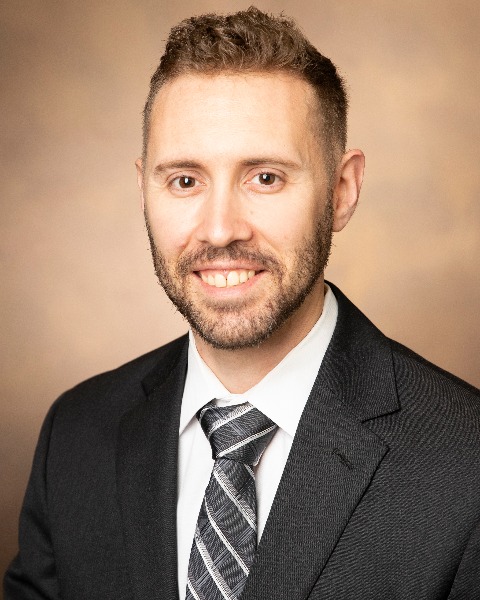Deformity
Ultimate Fate of Adult Spinal Deformity Revision Cases: What Happens After the Reoperation?
Friday, February 21, 2025
7:00 AM - 2:00 AM EST

Steven Roth, MD
Assistant Professor of Neurological Spine Surgery
University of Florida
Gainesville, FL, US
Presenting Author(s)
Introduction: Revision surgery among adult spinal deformity(ASD) patients remains less well-studied than index ASD operations. We sought to characterize indications as well as assess patient reported outcomes measures(PROMs) and long-term complications.
Methods: A retrospective review of a single-center database was performed to identify ASD patients undergoing revision surgery with a minimum of 2yr follow-up. Patient demographic, radiographic, operative/perioperative, long-term complications, and PROMs, specifically the SRS-22r and the ODI, data were collected and analyzed.
Results: 149 patients were identified with a mean age of 50.3±17.2yrs, 2.4±3.2 prior spine surgeries, and 68.5%(n=102) being female. The most common indication for revision surgery was overall malalignment(74%), followed by pseudarthrosis(40%), lumbar stenosis(33%), and implant failure(24%). TIL increased from 9.6±5.3 to 14.9±5.1 following revision(p < 0.0001), with 77%(n=114) and 54% (n=81) of patients having changes made to the UIV and LIV, respectively, and 28%(n=42) undergoing 3COs. Of the patients with changes to the LIV, 80%(n=65) were extended to the pelvis. Patients saw significant changes across all radiographic parameters aside from TK(preop: 41.4±23.8 vs postop: 40.5±11.7, p=0.6022). Mean LOS was 8.0±14.5 days with 22%(n=33) being discharged to a rehab facility. 49%(n=73) of patients experienced at ≥1 complication following discharge for a total of 135 complications. The most common postoperative complication was implant failure±pseudarthrosis(18%) followed by PJK(11%). 34%(n=51) of patients RTOR following the initial revision for a total of 66 additional surgeries. Despite this, significant improvements were seen all domains of the SRS-22r and ODI were observed with 74%, 51%, 71%, 68%, 41%, and 18% achieving the MCID in the SRS-22r total-score, function domain, pain domain, self-image domain, mental health domain, and ODI, respectively.
Conclusion : In a cohort undergoing revision surgery for ASD, the most frequently encountered indications were malalignment, pseudarthrosis, and degenerative conditions. Statistically significant improvements in PROMs were identified at most recent follow-up despite high overall complication and additional revision surgeries.
Methods: A retrospective review of a single-center database was performed to identify ASD patients undergoing revision surgery with a minimum of 2yr follow-up. Patient demographic, radiographic, operative/perioperative, long-term complications, and PROMs, specifically the SRS-22r and the ODI, data were collected and analyzed.
Results: 149 patients were identified with a mean age of 50.3±17.2yrs, 2.4±3.2 prior spine surgeries, and 68.5%(n=102) being female. The most common indication for revision surgery was overall malalignment(74%), followed by pseudarthrosis(40%), lumbar stenosis(33%), and implant failure(24%). TIL increased from 9.6±5.3 to 14.9±5.1 following revision(p < 0.0001), with 77%(n=114) and 54% (n=81) of patients having changes made to the UIV and LIV, respectively, and 28%(n=42) undergoing 3COs. Of the patients with changes to the LIV, 80%(n=65) were extended to the pelvis. Patients saw significant changes across all radiographic parameters aside from TK(preop: 41.4±23.8 vs postop: 40.5±11.7, p=0.6022). Mean LOS was 8.0±14.5 days with 22%(n=33) being discharged to a rehab facility. 49%(n=73) of patients experienced at ≥1 complication following discharge for a total of 135 complications. The most common postoperative complication was implant failure±pseudarthrosis(18%) followed by PJK(11%). 34%(n=51) of patients RTOR following the initial revision for a total of 66 additional surgeries. Despite this, significant improvements were seen all domains of the SRS-22r and ODI were observed with 74%, 51%, 71%, 68%, 41%, and 18% achieving the MCID in the SRS-22r total-score, function domain, pain domain, self-image domain, mental health domain, and ODI, respectively.
Conclusion : In a cohort undergoing revision surgery for ASD, the most frequently encountered indications were malalignment, pseudarthrosis, and degenerative conditions. Statistically significant improvements in PROMs were identified at most recent follow-up despite high overall complication and additional revision surgeries.

.jpg)